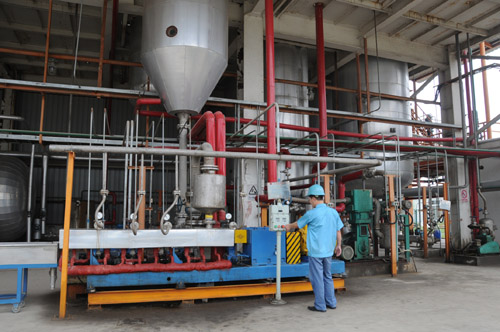The Role of PPC Plants in Sustainable Construction
Portland Pozzolana Cement (PPC) is an eco-friendly type of blended cement that has gained significant popularity in the construction industry due to its superior strength and durability. PPC is manufactured by grinding Portland cement clinker with fly ash, a byproduct of coal-fired power plants. The resulting product has enhanced durability, strength, and resistance to chemical attack, making it a popular choice in the construction industry. In this article, we will discuss the role of PPC plants in sustainable construction and how they are contributing to a greener future.

PPC plants are advanced manufacturing facilities that use state-of-the-art equipment and technology to ensure the efficient production of high-quality cement. The process of manufacturing PPC is environmentally friendly as it makes use of fly ash, which would otherwise be disposed of as waste. Additionally, PPC plants are known to emit less carbon dioxide than conventional cement plants, making them a more sustainable option.
One of the key benefits of PPC plants is that they help reduce the carbon footprint of the construction industry. Cement production is known to be one of the major sources of carbon emissions globally. However, the use of fly ash in PPC production not only reduces the carbon footprint of the cement manufacturing process but also reduces the amount of fly ash that would otherwise be disposed of as waste. This is a win-win situation for the environment.
Another benefit of PPC plants is that they provide a consistent supply of high-quality cement. The raw materials used in the production of PPC, such as limestone and fly ash, are usually sourced from nearby locations to reduce transportation costs. This ensures that the quality of the cement produced remains consistent, which is essential for the construction industry.
PPC plants also contribute to the circular economy by recycling fly ash, which is a byproduct of coal-fired power plants. By using fly ash in cement production, PPC plants reduce the amount of waste that would otherwise be sent to landfills. This not only reduces the environmental impact of coal-fired power plants but also helps conserve natural resources.
Moreover, PPC plants are designed to minimize their environmental impact. For instance, many PPC plants are equipped with dust collectors that capture particulate matter emitted during the production process. This helps prevent air pollution and ensures that the air quality in the surrounding areas remains healthy.
In conclusion, PPC plants play a crucial role in sustainable construction by providing a consistent supply of high-quality cement while minimizing their environmental impact. By using fly ash in cement production, PPC plants reduce the carbon footprint of the construction industry while also contributing to the circular economy. The growth of PPC plants is expected to continue as more and more companies recognize the importance of sustainability in the construction industry. Therefore, it is essential to promote the use of PPC and support the development of more PPC plants in the future.
If you want to know more information please click here.

评论
发表评论